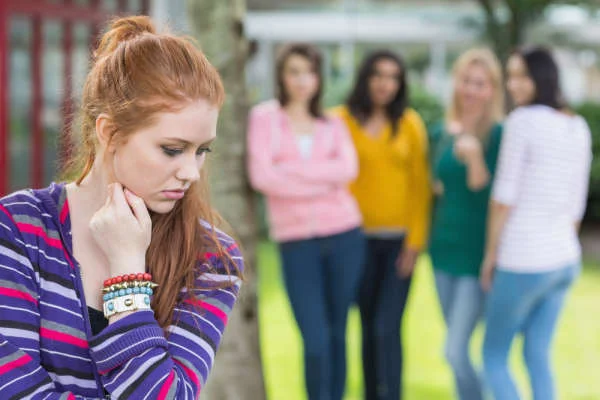What is a social anxiety disorder?
Social anxiety is best defined as a fear of social situations which may involve interactions with other people. It is triggered by fear and anxiety of being negatively judged and assessed by others.
It is a very troubling disorder because it causes anxiety and fear in most areas of a person’s life, and social anxiety, also known as social phobia, does not clear up on its own. Unfortunately many folk are unaware that they actually have a social anxiety disorder. Hypnosis for anxiety Adelaide is the best and most effective way to get rid of anxiety disorder.
Research has shown that social phobia is the third largest mental health care problem in the world today. In the US alone, according to the latest government data, up to 7% of the population suffer from social anxiety at any given time.
How others perceive those who are suffering from social phobia.
People with social anxiety desperately want to make friends, be included in groups, and be involved with other folk. But having social phobia prevents them from doing the things they would like to do.
Here are some of the ways people sometimes see those with social anxiety:
· Shy and overly quiet.
· Intellectually challenged and often withdrawn.
· Inhibited, unfriendly and highly nervous of nearly everything.
· Aloof in social situations, and seemingly disinterested in making conversation.
Strangely enough, there are people with remarkable insight who seek out someone they perceive to be feeling shy and awkward in a gathering, and make general conversation to help them feel at ease. Although not always shown, this is much appreciated by the social phobia sufferer, as it gives a little boost to their confidence that helps them cope with the current situation.
Events that trigger symptoms of social phobia.
Those with social phobia usually experience notable distress in some of the following situations.
· Suddenly being the centre of attention.
· Being teased, criticised, or introduced to people.
· Being watched doing something often leads to confusion and panic.
· Public speaking of any description.
· Feeling insecure and not belonging in social situations.
· Getting embarrassed easily, such as in blushing or being tongue-tied.
· Restlessness in a social event, with an urge to leave as soon as it is possible.
There are other symptoms as well, not listed here, but they all have a common root in fear of interacting with others.
What treatments are recommended for a social anxiety disorder?
Social anxiety is a fully-treatable condition which can be overcome with therapy, hard work on the part of the patient, and lots of patience.
Current research indicates that many anti-depressant medications for the social anxiety disorder, appear to be useless, even in the short term. Because everyone is different, there is no general rule that works regarding social phobia and medications, and many people are not keen on using medications which may be ongoing.
However, several years of work by different researchers, have uniformly shown that the most effective treatment for social phobia is cognitive-behavioural-therapy, or CBT. Studies have also shown that the prognosis is very good for patients who complete the CBT training.
People can definitely overcome social phobia if they keep on applying the CBT strategies to their lives.
What is cognitive-behavioural-therapy?
CBT is similar to hypnotherapy treatment that can help you manage your problems by changing the way you think and react to stress triggers.
By helping you to change your mindset, and identify the fears which may be causing your social anxiety, CBT can successfully guide you away from anxious fears controlling your feelings.
There is also an enhanced CBT model of hypno-psychotherapy used, which has all the benefits of CBT, with the added strength of working with the subconscious mind, for more rapid and powerful change of mindset.
This model is often used by progressive and experienced therapists.
The difference between social anxiety and panic disorder.
Social anxiety and panic disorder are often confused by many people, but they are not the same.
Those with social phobia do not have panic attacks, as is the case with those who suffer from a panic disorder. Social phobia sufferers have anxiety attacks and do not need to go to the emergency room after an anxiety episode, although it is also an enormously upsetting experience.
Folk having a panic attack usually fear they are experiencing a medical problem like a heart attack, and feel that they may be dying. They are often rushed to the emergency room for treatment.
A major problem.
Studies have revealed that alcoholism, substance abuse, a lack of personal relationships, and employment hassles, also contribute to a social anxiety disorder. These are basically everyday problems which will greatly benefit from the CBT therapy used to treat social phobia.
However there is a general lack of professional and knowledgeable therapists, as well as in some areas, a lack of treatment facilities for patients needing ongoing therapy for social anxiety disorder.
Studies have proved CBT therapy to be markedly successful in changing people’s thoughts, beliefs, feelings, and behaviour. There is a consensus of opinion that more therapists are needed to undergo specialist training to treat the growing numbers of people who suffer from a social anxiety disorder.
This disorder is rated in the top 5 emotional problems worldwide.

